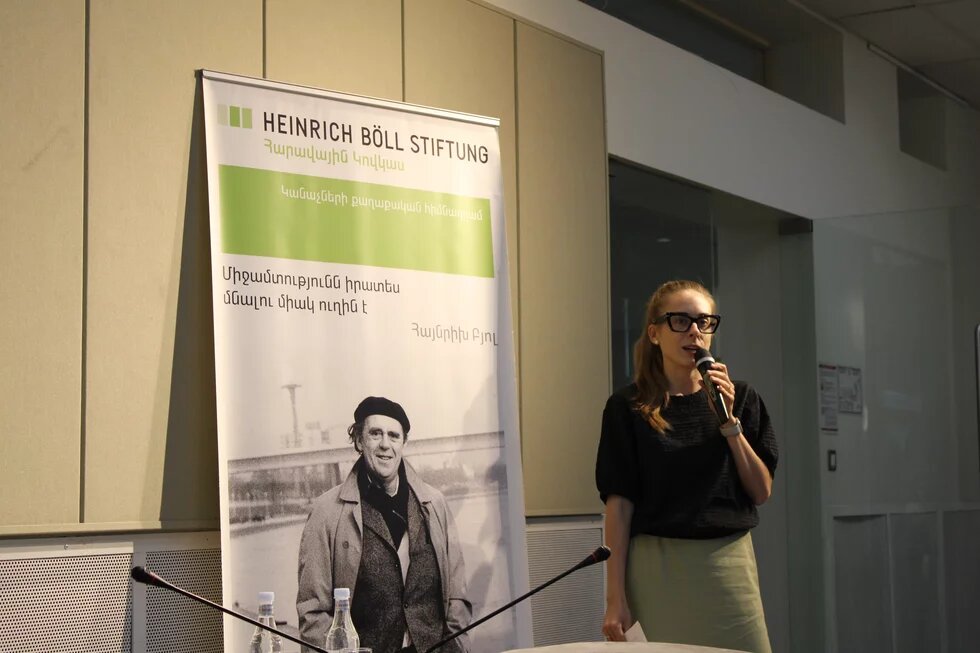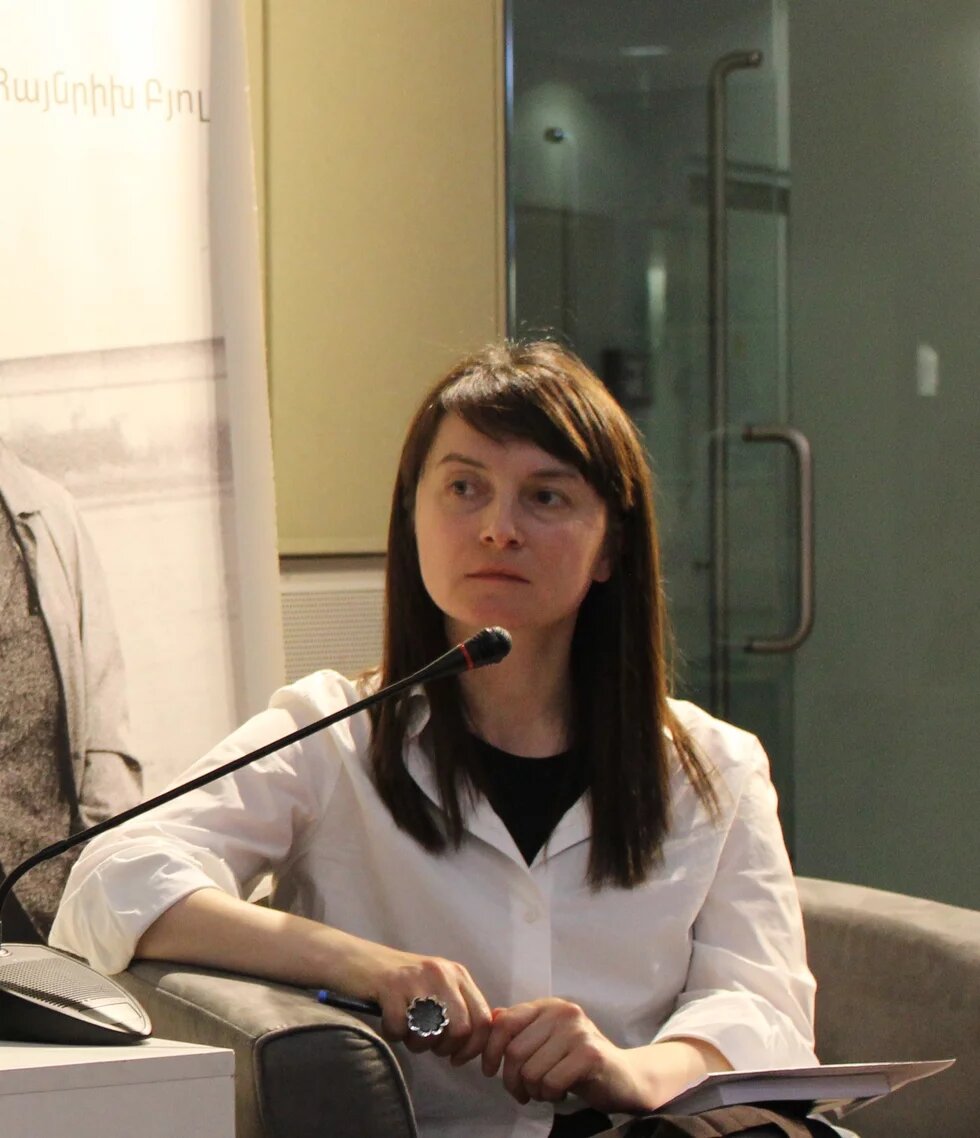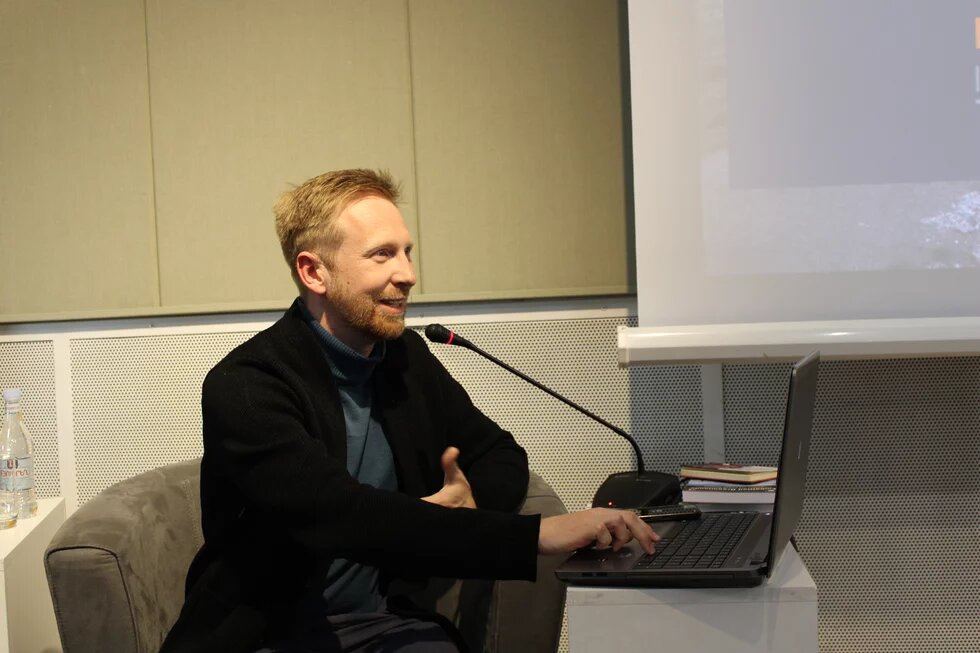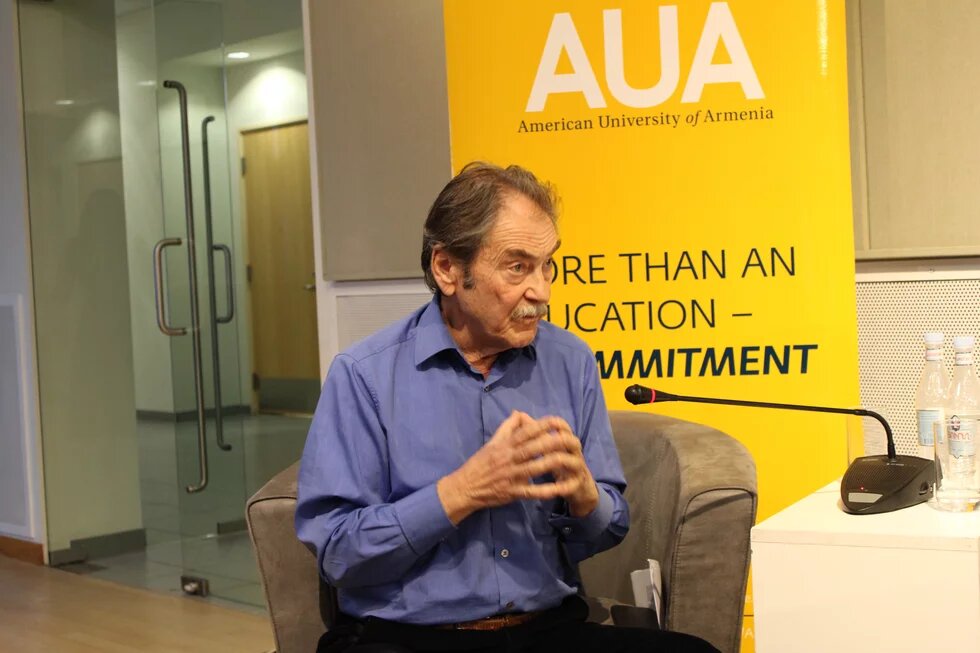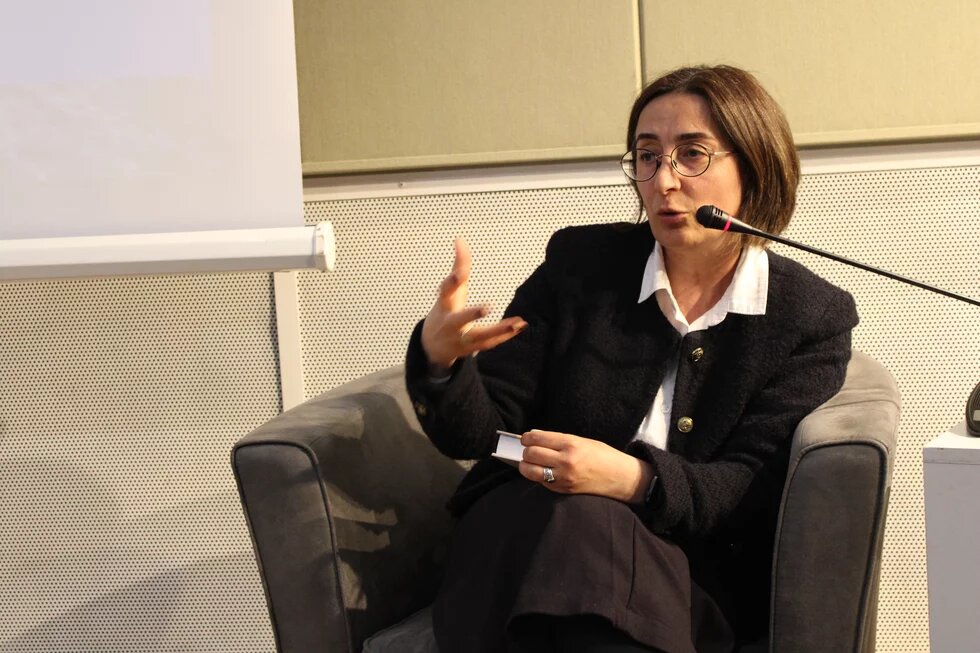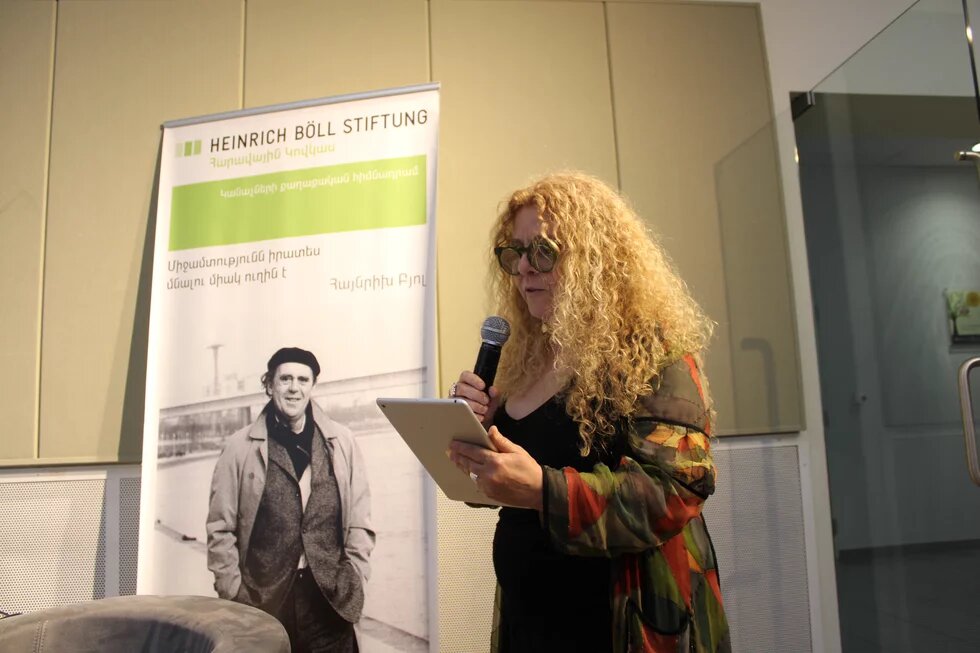
On April 29, the Heinrich Boell Foundation Yerevan Office – South Caucasus Region, the Turpanjian Institute of Social Sciences (AUA), and the Oral History Matters (OHM) initiative (AUA) hosted the official book launch of the Armenian translation of David Leupold's Embattled Dreamlands: The Politics of Contesting Armenian, Kurdish, and Turkish Memory in Akian Art Gallery at the American University of Armenia.
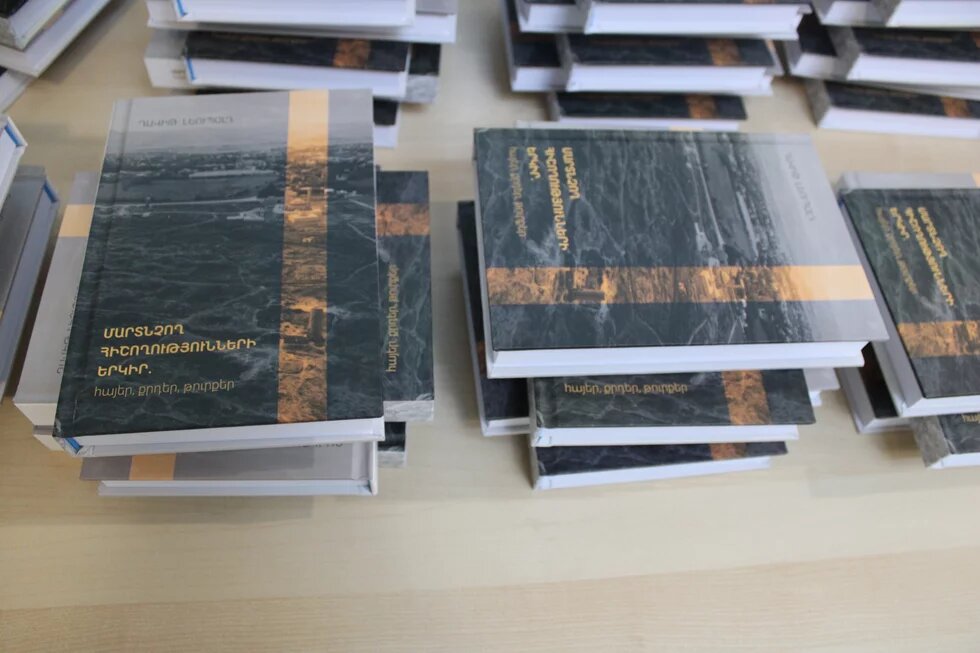
The event featured opening remarks by Hourik Addarean, associate professor at the College of Humanities and Social Sciences, AUA, and Sonja Schiffers, director of the Heinrich Boell Foundation Tbilisi Office – South Caucasus Region. It included a presentation on the main themes of the book by the author, David Leupold, followed by a discussion with speakers Cengiz Aktar, political scientist and public intellectual currently invited to AUA, and Lusine Kharatyan, Yerevan-based cultural anthropologist and fiction writer. The session was moderated by Eviya Hovhannisyan, programme coordinator of the Heinrich Boell Foundation Yerevan Office – South Caucasus Region.
Hourig Addarean welcomed the attendees and presented the main work directions of the co-host organizations. Sonja Schiffers highlighted the story of the translation, which was initiated five years ago and has contributed to the developing new terminology in Armenian. She also addressed the political and historical aspects of the book and their relevance to current events. "And today, unfortunately, it is hard to say what is bigger: the chances for peace or the chances for more violence. Turkish-Armenian normalization efforts at the political level remain blocked by Azerbaijan. However, as David writes, genuine and sustainable normalization also needs to deal with the past, and Turkey is less ready now than it was a few years ago. One of the aspects that impressed me most is David's observation of how victims can become perpetrators."
Eviya Hovhannisyan, who also served as a co-editor of the book, shared her reflections on the book's main aspects and distinctive features. She emphasized the significance of the Armenian translation, noting that it opens new opportunities for Armenian readers to engage directly with a work that has already earned considerable international recognition, including the 2021 book prize from the Central Eurasian Studies Society. According to her, the book plays a crucial role in prompting a reevaluation of how collective memory, contested geographies, and ethnonational, as well as ethno-religious identities, are narrated, politicized, and experienced—especially in regions shaped by histories of displacement, violence, and coexistence.
Following these remarks, David Leupold, Cengiz Aktar, and Lusine Kharatyan sat for a reflective discussion. David Leupold began by emphasizing the significance of the Armenian translation, describing it as his academic and personal dream to make this book accessible to Armenian readers. He outlined the book's central themes and structure, explaining that it focuses on collective memory and the contested geographies of Western Armenia, Northern Kurdistan, and Eastern Turkey. Leupold conducted a year-long field study to explore these topics, including over 100 interviews. His research was further supported by archival investigations and a discourse analysis of school textbooks aimed at examining the tensions and relationships between official state narratives and oral histories. He noted that the imagined geographies of Western Armenia and Northern Kurdistan intersect—particularly in the region around Lake Van, which became the focal point of the study.
In his remarks, David Leupold reflected on how nations incorporate the national narrative and how people make sense of living in the "homeland of others." To illustrate his point, he referred to the Van region. He pointed out that while the demographic has changed, the landscape still bears the traces of the past. So, this situation raises a key question: how do people make sense of this silence in the landscape: "What I am interested in is remembering beyond nations. Here, I look at personal accounts, and I argue basically that when people make sense of the past when they narrate the past, this past is much less shaped by national identity․" In contrast to the concept of national memory, the author introduced the term multi-collective memory, which, according to him, offers a new perspective on history, specifically oral history. "I argue that other aspects of one's biography have a fundamental impact on how they remember. I show how locals and newcomers may remember differently, also how different generations remember differently, which becomes specifically relevant with regard to the shift from Soviet to post-Soviet generations in the context of Armenia but also in the context of Kurds."
D. Leupold explained that his research focuses on "remembering beyond nations," emphasizing that personal narratives about the past are often shaped less by national identity and more by individual experience. Challenging the conventional idea of national memory, Leupold introduced the concept of multi-collective memory, which he sees as offering a more nuanced understanding of oral history. He argued that "other aspects of one's biography have a fundamental impact on how they remember," highlighting how memory can vary not only between locals and newcomers but also across generations.
Cengiz Aktar highlighted the significance of the book in light of the overwhelming tendency of dememorization in Turkey: "What characterizes the memory of Genocide in Turkey is the dememorization. There is hardly any memory of Genocide, not only the Armenian Genocide but also the Pontic Genocide. Although it is challenged, it is a kind of Genocide because the culture was wiped out."
As Aktar noted, the concept of dememorization forms the core paradigm. In Turkey, this memory is gradually fading as the older generation passes away: “Today, among the youth, very few understand what it means to be Armenian or Greek.” This is why, according to Cengiz Aktar, David's work is especially valuable. He also paid attention to the fact that such sources are scarce in Turkey because the academic field largely neglects the Armenian Genocide. "Who in Turkey still recalls or knows about the Genocide? Only the elderly, some individuals, and scholars mainly working outside the country."
Lusine Kharatyan discussed the key differences between Armenian and Turkish ways of remembering. She noted that, in the Turkish context, there is a general tendency toward forgetting and recontextualizing events, often framing them within the broader chaos of the First World War as a time when "everybody was fighting against everybody else." Additionally, history textbooks tend to portray Armenians as Russian agents and traitors.She also spoke about the instrumentalization of silencing: "The way of silencing is also instrumentalized by the state. And there is no room left for creating dialogue between these smaller silenced narratives and thus creating a space where this kind of tragedy could be spoken among these three groups." It is not only about what is remembered but what is forgotten and how it is forgotten.
The books can be obtained for free at the hbs Yerevan office. Please contact our Facebook page for further details.
